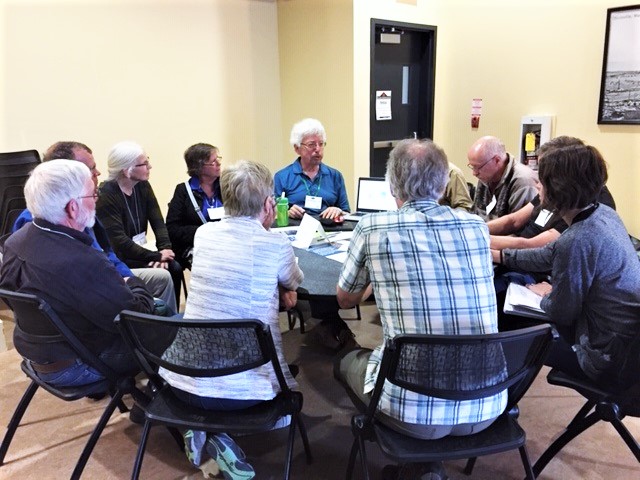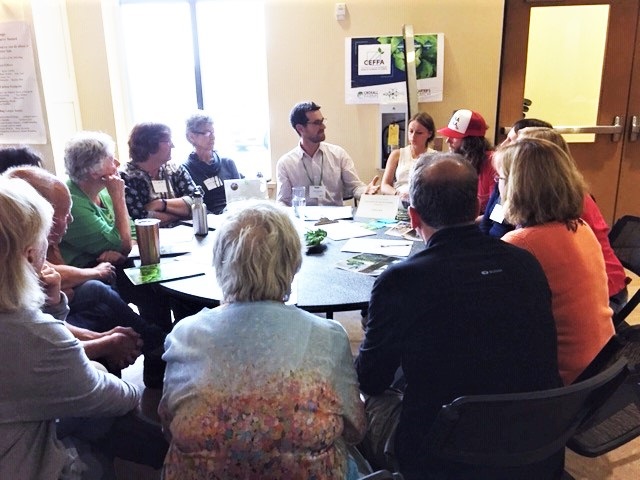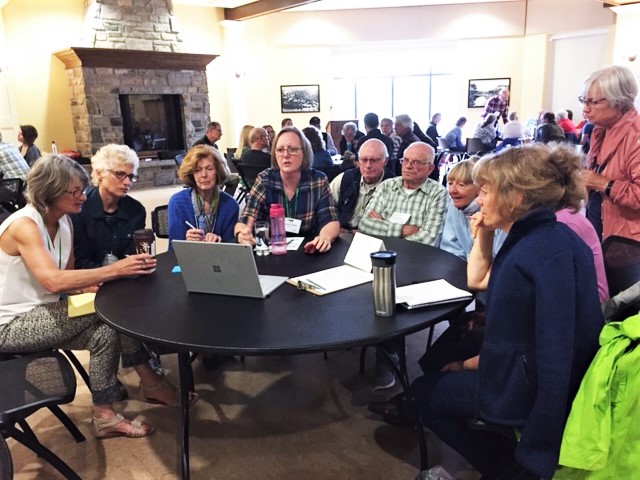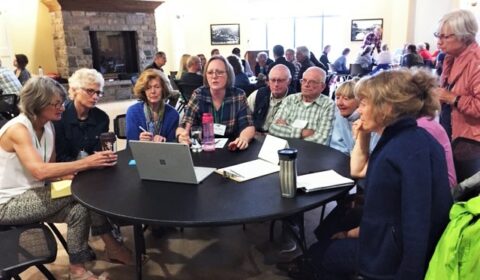GREEN INTEREST GROWING AMID GLOBAL WARMING
Mark Clairmont | MuskokaTODAY.com
HUNTSVILLE — Growing interest in green is good for the Green Party, who are becoming more proactive in the messaging and branding.
They say concern about global warming and the climate crisis brought just under 200 residents of Muskoka and Parry Sound together to learn more about climate change in the riding.
And “what to expect and what we can do about it,” says a provincial party release.
The event was held at the Active Living Centre Saturday, June 15, and was organized and sponsored by the local constituency association of the Green Party of Ontario.
Keynote speaker Dr. Peter Sale painted a picture of Muskoka’s future, said riding president Arleigh Luckett.
He said: “We have already lost three weeks a year of ice coverage on our lakes,” adding “if you like maple syrup eat it now.”
He said: “In winter we will only have one month of consistently sub-zero temperatures instead of three, while in summer we will suffer through longer heat waves. Some impacts are already upon us or have become inevitable due to our inaction. It is just possible the most extreme impacts may be avoided or reduced but only if humans make a global effort right away.”
Sale warned against tokenism in the fight against global heating.
Declining plastic straws alone will not make a noticeable difference. Adopting a vegetarian diet or eating less meat would do more.
But no single change in lifestyle or government policy can do the job by itself.
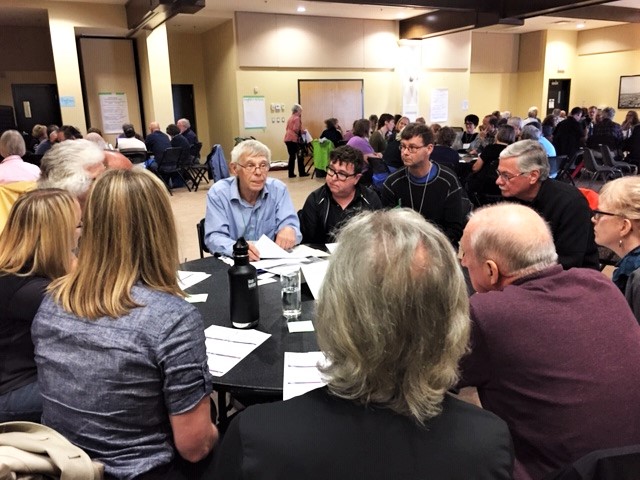
Sale stressed that humans are the only species ever to change the global biosphere and humans must now steer it back to equilibrium. He said he no longer has to convince people about climate change.
His message has changed to the urgency of the need to act. We need policy makers and government to take immediate coordinated action. We need citizens to insist their governments do so.
Despite the dire warning, Sale held out hope that as with the challenges of acid rain and the depletion of the ozone layer, this challenge may yet be met in time if we all work together.
Following the keynote, participants had the choice to sit in on five of 13 short but
informative “table talk” presentations from three streams: Preparing for Local Effects, Reducing Our Carbon Footprint and Understanding Larger Issues.
The speakers, all of whom are local residents, included university professors and researchers, business people and community activists. Alicia McLinden, a Huntsville High Student, brought in a student’s perspective.
Janice Larade, a member of the Circles community, spoke with passion and poignancy about the need to have the voice of low income citizens heard from her lived experience of having to manage on a very low income.
“This is the first time we have been invited to anything like this,” she said.
The importance of choosing the right materials for buildings and other infrastructure came up at more than one table. When sustainable forestry practices are in place using lumber sequesters carbon whereas the mining and processing of minerals to make steel releases carbon into the atmosphere.
“When your municipality is building or replacing infrastructure, ask if they have looked at greener alternatives” participants were urged.
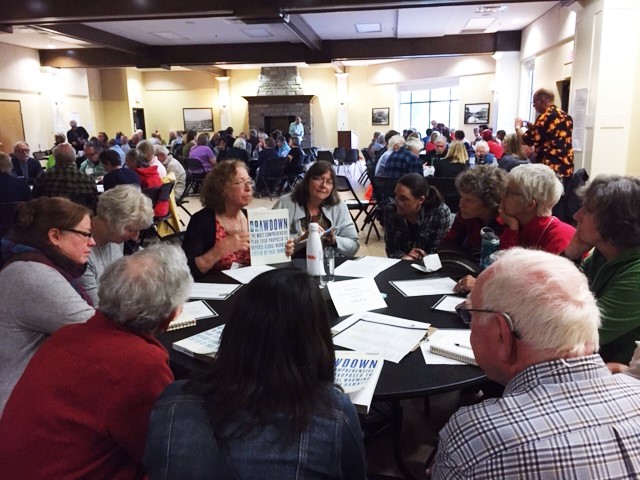
Other tables featured talks on local food production, waste and single use plastic reduction, watershed protection, understanding carbon pricing and making a just transition to a green economy where no province, no worker and no family are left behind.
At the end of the day, many participants commented they wished they could have the Coles notes for all of the table talks.
One participant wrote: “ I learned a lot and am so grateful for the opportunity to be more informed about the “green” issues that concern us all. Most of all it has motivated me to take action in my own life.”
